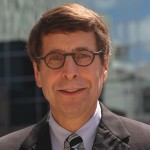 IN A TIGHTENING JOB MARKET AND WITH NEW national health care quality standards on the horizon, pharmacists are increasingly turning to specialty certification. From 2005 to 2010, the number of board-certified pharmacists more than doubled, to nearly 10,500 practitioners. The jump doesn’t surprise William Ellis, R.Ph., M.S., executive director of the Board of Pharmacy Specialties (BPS) in Washington, D.C.
IN A TIGHTENING JOB MARKET AND WITH NEW national health care quality standards on the horizon, pharmacists are increasingly turning to specialty certification. From 2005 to 2010, the number of board-certified pharmacists more than doubled, to nearly 10,500 practitioners. The jump doesn’t surprise William Ellis, R.Ph., M.S., executive director of the Board of Pharmacy Specialties (BPS) in Washington, D.C.
“Interest in board certification is growing rapidly because there is increased national emphasis to document and hold health care professionals accountable,” said Ellis. “One way to do that is through certification, which attests to a certain level of experience and knowledge among providers.”
Board Certification through the Years
BPS introduced its first specialty certification, for nuclear pharmacy, in 1978. Today, there are five additional specialty pharmacy certifications, in ambulatory care, nutrition support, oncology, psychiatric, and pharmacotherapy (by far, the most prevalent). BPS is currently evaluating three more potential specialties—in critical care, pediatrics, and pain and palliative care—to determine if each represents a knowledge base and skill set sufficiently distinct for specialty designation.
ASHP has long been at the forefront of the pharmacy specialty movement, convening a conference in 1990 with the American Association of Colleges of Pharmacy (AACP), the American Pharmacists Association (APhA), and the American College of Clinical Pharmacy (ACCP) to examine the future of certification. ASHP also works directly with BPS and other stakeholders in exploring new specialties, supporting the need for a sound process for developing new specialty credentials.
“We saw early on that specialization and credentialing were the wave of the future for pharmacy,” said ASHP Executive Vice President and CEO Henri Manasse, Jr., Ph.D., Sc.D. “Everything is moving in the direction of higher skill and knowledge bases.”
ASHP championed four of the current BPS specialties and has created more specialty review and prep courses than any other organization, including its courses for the new ambulatory care specialty certification. In addition, Manasse and ASHP helped create the Council on Credentialing in Pharmacy, which provides leadership, guidance, and coordination for the profession’s credentialing programs. ASHP also pushed for the recent publication of technician and pharmacist credentialing frameworks, which guide policy development.
Growing Acceptance
In some sectors of pharmacy practice, board certification is becoming commonplace. David Witmer, vice president of member relations at ASHP, has spearheaded work on four petitions to BPS and notes that the vast majority of pharmacists who are currently board certified practice in hospitals and health systems.
“Nearly 15 percent of ASHP’s pharmacist members have obtained certification,” he said. “APhA’s recent decision to pursue accreditation of community pharmacies, the emergence of ACO’s [accountable care organizations], an increased focus on quality, and ASHP’s Pharmacy Practice Model Initiative are all likely to fuel further expansion.”

Daniel Hays, Pharm.D., BCPS, clinical pharmacist with University of Arizona’s University Medical Center
For Daniel Hays, Pharm.D., BCPS, a clinical pharmacist in the emergency department at the University of Arizona’s University Medical Center in Tucson, board certification in pharmacotherapy differentiates him from his peers.
“When you earn certification, it shows that you took one step further to demonstrate that you are a highly trained individual who has dedicated a good portion of time to training and education,” Hays said. And as program director for second-year pharmacy residents, Hays sees very practical reasons for the new generation of pharmacists to become certified.
“Just about every position my residents apply for requires board certification or expects them to get it within a certain amount of time,”he said.
Speaking Physicians’ Language
For many pharmacists in their fifties and sixties, retirement is a moving target. Gary Stoehr, Pharm.D., dean of the D’Youville College School of Pharmacy in Buffalo, thought he might have retired by now. “But given the market, I’m glad I didn’t,” he said. “These things come in cycles, and I’m glad I rode it out.”
That is the case at the University of Chicago Medical Center, where all recently hired clinical pharmacy coordinators and clinical specialists are either board certified (and residency trained) or agree to become certified within 18 months, explained Heath Jennings, Pharm.D., BCPS, director of pharmacy acute care services and graduate pharmacy education at the 600-bed hospital.
“Physicians understand residency training and board certification. It speaks their language,” Jennings said. “My focus has been to decentralize pharmacy practice and put more specialty pharmacists on the units and at the bedside. Board certification is a marker of competence that tells me they will succeed in that.”
Even pharmacists with many years of experience are seeking certification. Robert L. Talbert, Pharm.D., FCCP, BCPS, professor of pharmacy at the University of Texas College of Pharmacy in Austin, was already a full professor and past president of ACCP when he got his pharmacotherapy certification in 1994.
”When someone is board certified, I know that they know what they’re doing,” he said. “Professionals in other areas of medicine understand the importance of board certification, but many in our own profession don’t yet appreciate its true significance.”
Certainly, board certification may mean a larger paycheck, but compensation is not a primary motivation for most pharmacists who seek certification, Talbert insists.
“In surveys asking the reasons for board certification, peer respect still tops on the list,” Talbert said. “Part of it is also the personal satisfaction of proving to yourself that you can jump this fence.”
The link between residency training and certification is also maturing. Certification in the respective specialty is expected of pharmacists who serve as directors of PGY2 residency programs. Starting in 2013, only ASHP-accredited residencies or other BPS-recognized training programs will be recognized in BPS eligibility requirements.









 If you want to contribute tutorials, news or other stuff please contact us. We pay 150 for each approved article.
If you want to contribute tutorials, news or other stuff please contact us. We pay 150 for each approved article. Consectetur adipisicing elit. Sed do eiusmod tempor incididunt ut labore.
Consectetur adipisicing elit. Sed do eiusmod tempor incididunt ut labore. This site uses valid HTML and CSS. All content Copyright © 2010 Newscast, Inc
This site uses valid HTML and CSS. All content Copyright © 2010 Newscast, Inc If you like what we do, please don't hestitate and subscribe to our
If you like what we do, please don't hestitate and subscribe to our